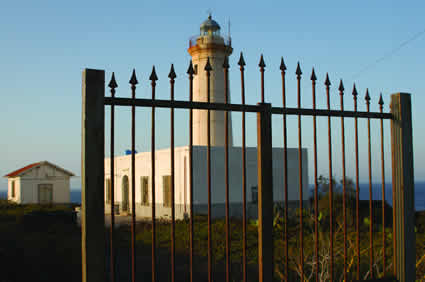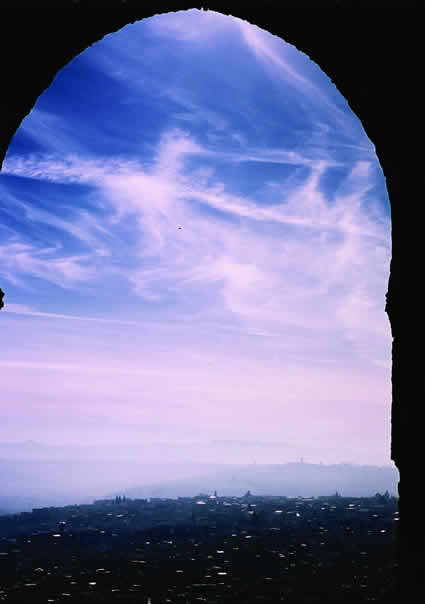To leave, to pack up suitcases with heavy or light clothing, to trace a practical itinerary, to get on the road and leave every day life behind. This should be a vacation. But it is also true that, for many, the true pleasure of travelling relates to what there is to explore, rather than leaving behind a sunset at the end of a stay. To search for information, whether on printed maps or in the virtual sea of the network, provides emotions of anticipation for the joy of the tangible and physical discovery.
But if for the so-called abled-bodied problems can begin once the door of the home is closed, for persons with disabilities difficulties can arise even before leaving, while simply planning for the trip itself. That is why it is important to move around without problems, avoiding the thousands of obstacles that can spring up between the moment before departure and the way back.
The legislator has chosen to study this matter, proposing regulations
 regarding its various aspects.
regarding its various aspects.Laws n. 152 of 2000, n. 13 of 1989 and n. 104 of 1992 are the remaining bearing elements for the disengagement from bureaucratic and physical obstacles which can turn away persons with disabilities.
As a matter of fact, such normative measures have guaranteed the right to access information whether it is public or private, even through Web sites of local or state agencies. But not only that. The right to access information is not limited to information obtainable to allow appropriate planning of the vacation, it also relates to tourist infrastructures themselves (in this regards D.P.R. 503/96 on overcoming architectural barriers). A note of precision, however, entities mainly delegated to implement such laws are the Regions, even in light of the recent constitutional revision.
There are still few national tour operators dealing specifically with tourists with disabilities. As an example, we can name VentaClub which has produced a dedicated catalogue, focusing on destinations which guarantee full access and use
 , at least in seaside resorts.
, at least in seaside resorts.To get around the limit imposed on the scarcity of traditional interlocutors, once again it is possible to receive help from the sea of information found on the Internet. More and more tour operators, dedicated to tourists with a disability, in a position to feature their direct experience in the field, offer their services through online portals. Without forgetting that these same local tourist agencies present itineraries and offers that can be referred to on their own sites, it can be asserted, continuing an analysis of the phenomenon, however elementary, that organizations of persons with disabilities have the merit to have brought to the attention of the more important tour operators, the matter of accessible tourism. When the solution was not offered by anyone, as mentioned, the same associations have given life to true issues of tourist intermediation dedicated to their members or those interested in them.
Today there are numerous specialized operators. To name a couple, "Mondo possibile" (www.mondopossibile.com)
or CO.IN. (Consorzio Cooperative Integrate, www.coinsociale.it).
Comfortably from home, with the help of the computer, it is therefore possible to gather the necessary information to plan, but also to contact directly the agency so that the dream can become a reality, with the organization's full knowledge about the needs of a differently abled tourist.
For the do-it-yourself tourist, there is on the market more and more presence of tourist guides dedicated to persons with disabilities, from individuals to organizations. Even the well-known institution like the Touring Club has printed a guide specifically designed for such tourists ("Tourism without barriers - Italy for everyone: excellent destinations").
But what can be potential destinations for whom has a physical or sensory disability? In one word: all. It depends only on the degree of love for adventure that a tourist with a disability has. Because, in fact, possibilities are infinite, thanks to the help of people and special equipment. It is possible to go down or up a mountain covered with snow or marked with sunny trails. It is possible to cleave through the waves on sailboats or admire the bottom of the sea with the oxygen tanks or lie on the beach like lizards in the sun. It is also possible to discover the beautiful sights of Rome or Venice that people all over the world envy us. You can choose to parachute down or tame the breeze with a paraglider. Everything is within the reach of the tourist with physical limitations if helped by people and adequate equipment. The right to travel, understood in its physical as well as emotional dimensions, must be guaranteed as well to students with disabilities. The ministerial circular n. 291/92 from the Department of Public Instruction requires that even if a single student with mobility difficulties requires it, his participation to a school trip should be guaranteed with all the positive effects that this entails.
So, when you get out of bed in the morning and it snows or rains on your day, don't get depressed. Remember that the whole world is waiting for you. You only need to open the door and get out.